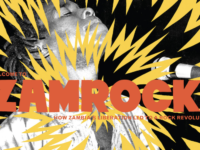Even now, these are songs — to paraphrase Paul Simon from the Creole-stomping opening track on Graceland — of miracle and wonder. There is still a sense of discovery, decades after its August 25, 1986, release, and still a little controversy, too.
Justly credited as a masterpiece in its time, Graceland has matured into one for the ages. But charges of musical larceny followed, from Los Lobos to some locals as Paul Simon broke an on-going boycott against South Africa’s racist policy of apartheid by travelling to that country to work with a series of native musicians — including the Boyoyo Boys (“Gumboots”), whose cassette tape of songs had originally inspired Simon. The local musicians’ union welcomed the rock legend, however, hoping to spread their music from the streets of Soweto to the world.
And Graceland did just that. But that was just the beginning of its impact. As Simon later traveled to Lafayette, Louisiana; Los Angeles; New York and elsewhere, he gathered and later incorporated sounds from the likes of Adrian Belew (“Boy in the Bubble,” “You Can Call Me Al,” “Crazy Love, Vol. II”), the Everly Brothers (“Graceland”), Rockin’ Dopsie (“That Was Your Mother”), Linda Ronstadt (“Under African Skies”), Los Lobos (“All Around The World”) and Ladysmith Black Mambazo (“Diamonds on the Soles of her Shoes,” “Homeless”).
Graceland, then as now, was world music in the very best sense of those words, a mixture of exotic flavors that Paul Simon kept stirring and stirring until there was a spicy new roux. Some of his most resonant songwriting held this recipe together, as Simon told tales of common glory, steep adversity and (with a prescient image of a bomb in a marketplace) sudden violence.
Simon’s characters were so finely wrought that they live on in our imagination even today: the child from his first marriage, a soft-bellied middle ager wondering how his life got to be so hard, a rich girl who doesn’t bother hiding it.
That gives color and weight to this album’s most lasting contribution, a common ground Paul Simon found in the beats. Former Talking Heads frontman David Byrne, in a documentary that accompanied the 25th anniversary box set reissue of Graceland, asserts that “almost all pop music in the world is African music,” and this album is the cultural moment in which that connection was definitively made.
“The roots of rhythm,” Paul Simon sings, and it’s so very true, “remain.”
- How Deep Cuts on ‘Music From Big Pink’ Underscore the Band’s Triumph - July 31, 2023
- How ‘Islands’ Signaled the Sad End of the Band’s Five-Man Edition - March 15, 2022
- The Band’s ‘Christmas Must Be Tonight’ Remains an Unjustly Overlooked Holiday Classic - December 25, 2016




